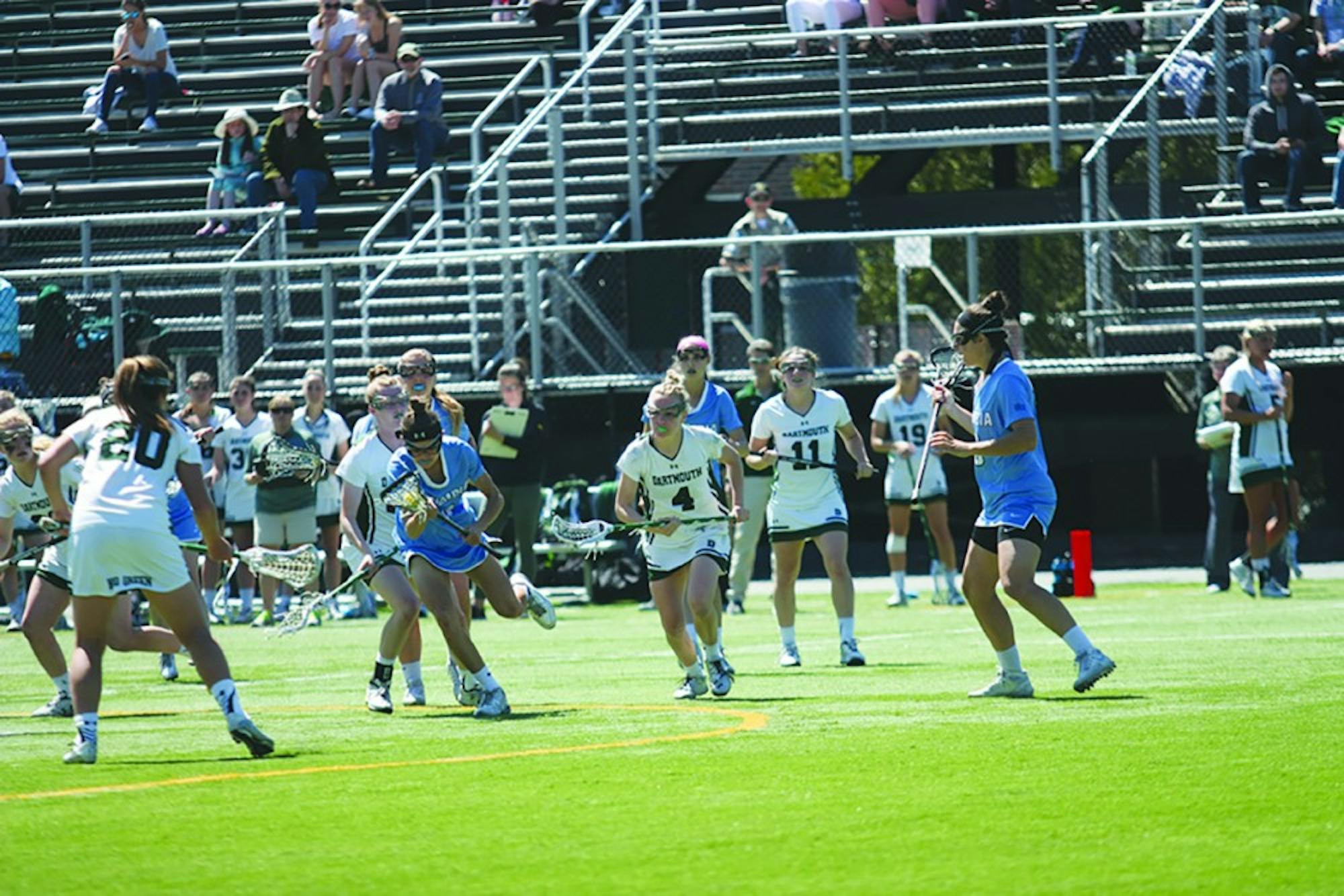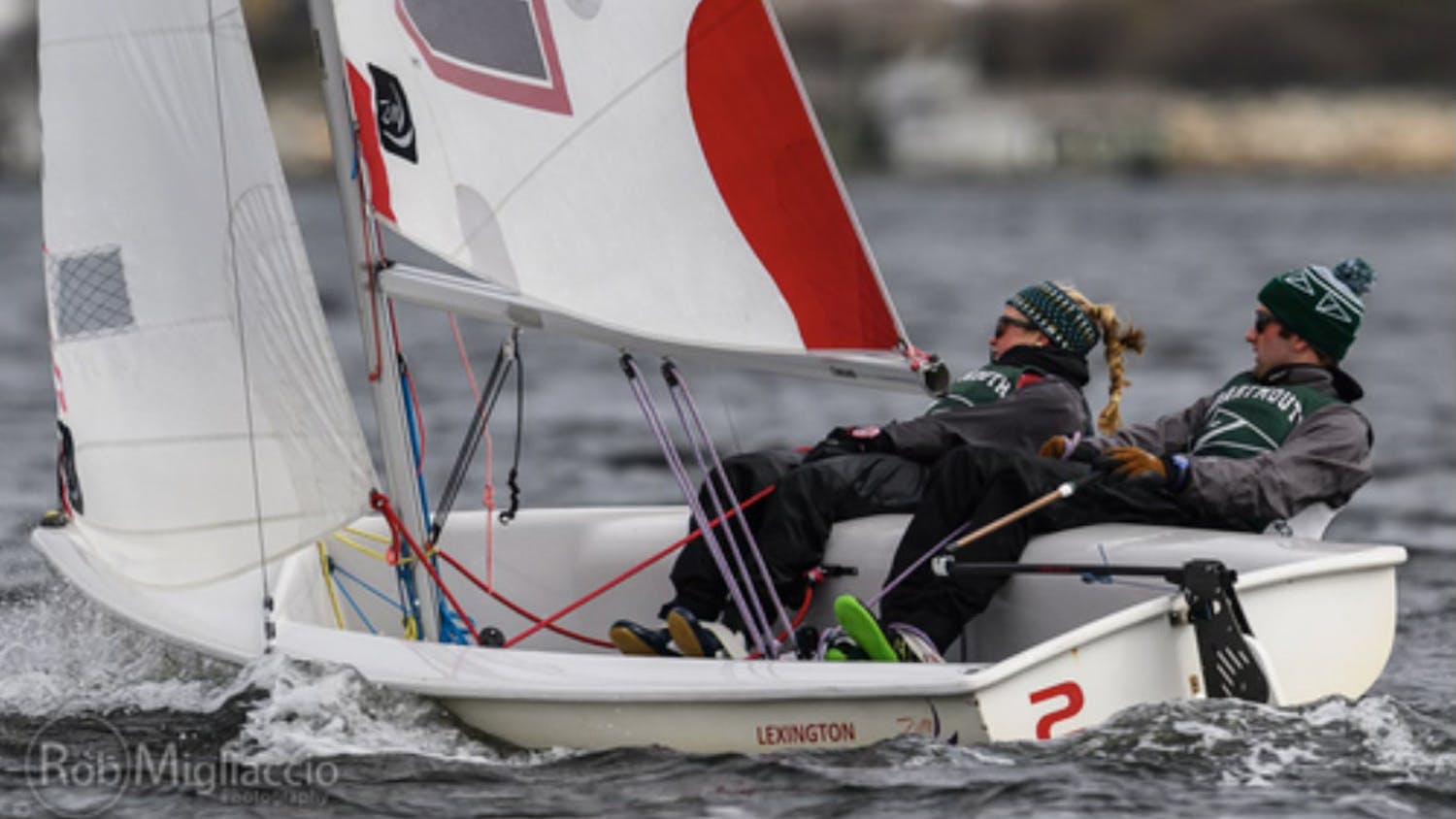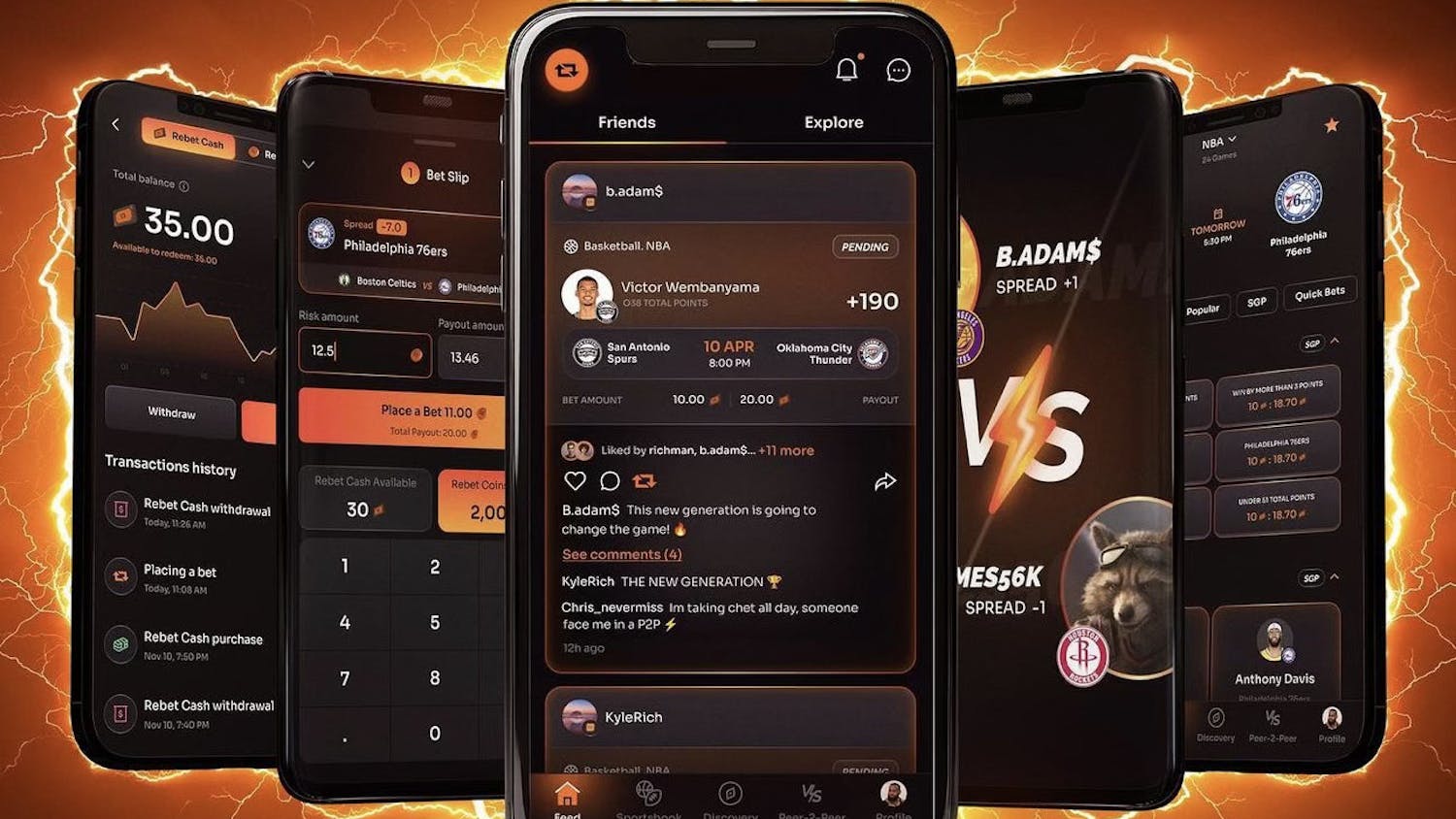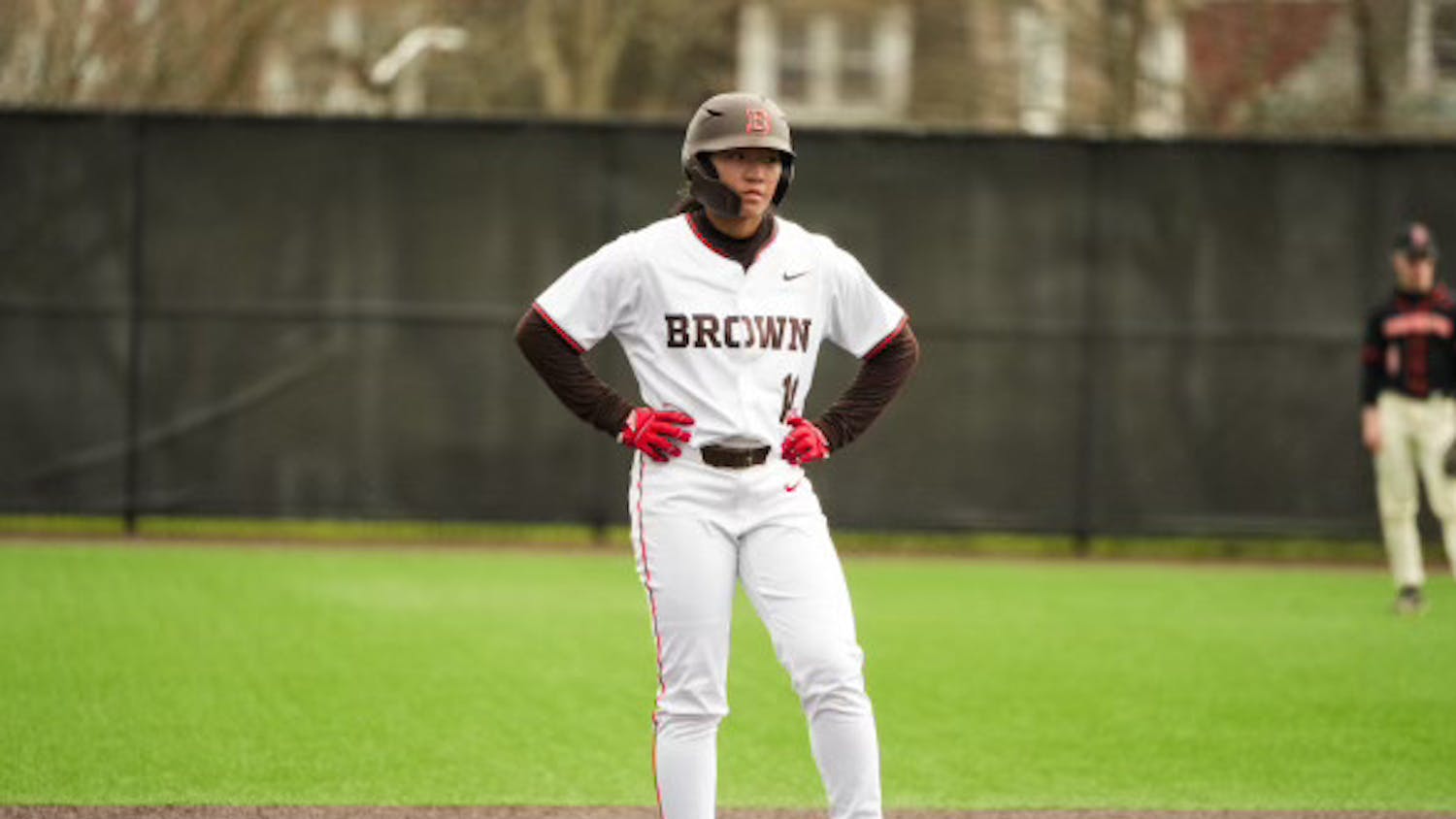If you ask any Dartmouth student about his or her day, the answer is usually “Things are busy.” At any given time there can be a lot to manage, from class to extracurricular activities to socializing, to even the little things like when to get meals and do laundry.
For a student athlete, add in nearly 20 hours a week in practice and competition, in addition to travel time.
“It’s pretty busy, but it’s manageable,” said Justin Donawa ’19, a two-sport athlete on the soccer and track and field teams while describing his schedule.
Dartmouth’s 35 varsity teams compete in the Ivy League Conference and the NCAA Division I, a high level of competition that translates into over two hours in practice most days of the week.
“Typically I’m at practice around two hours a day five days a week. And lift for about an hour two days a week,” said Ashley Zepeda ’18, a member of the women’s rugby team. “Sometimes practice runs a little longer because of meetings with the coaches.”
Since it requires such a large time commitment, athletics can easily consume a student-athlete’s life. As a result, the NCAA and the Ivy League place restrictions on how much time each student-athlete is allowed to devote to athletics. Given the stringency with which the NCAA enforces these rules, Dartmouth and other institutions have compliance offices in place to help coaches and teams navigate the rules.
“NCAA rules dictate the time demands of kids both in season, out of season, and during vacation periods,” said Jacob Munick, assistant athletic director of compliance at Dartmouth. “I have to be able to articulate all of these rules and make them malleable for the masses, whether that’s for student-athletes, coaches, parents of student-athletes, boosters, et cetera.”
The NCAA mandates that when in season, each athlete can devote a maximum of four CARA, or Countable Athletically Related Activity, hours per day and 20 hours per week with one required day off. These hours are defined as the hours that the coach requires or monitors attendance. The coach does not have to be present for these hours to count.
“It is understood that at this level, if you want to compete at this level, you have to practice a lot,” Munick said. “The coaches have to understand the nuances to that rule and understand what it means to be hands off and to be sympathetic to these students and the other things they have going on.”
However, the rules change significantly when a team is in a non-championship season, such as the fall season for baseball and softball, or when a team is in an off-season, Munick said. In an off-season, teams are limited to eight hours a week and two required days off.
Dartmouth, however, must also adhere to the Ivy League’s set of rules, which are even more restrictive than the NCAA. In the off-season, that’s a limit of six hours per week rather than eight.
And of those restrictions, the NCAA dictates how these hours can be allocated. For example, during an off-season, a maximum of two of the weekly six hours can be devoted to skills training, which includes anything involving sport-specific equipment or getting into offensive or defensive formations, while the other four must be strength and conditioning.
For three-sport athletes, such as distance runners who are on both the cross country and track and field teams, their off-season is limited to the summer. Thus, from late August all the way through June, these runners go through the same weekly regimen.
Joey Chapin ’16, a member of the cross country and track and field teams, outlined his weekly schedule. From Tuesday to Friday, the team meets at 3:15 p.m. to start running, doing a workout that lasts between one and two hours depending on whether or not they will lift after the run. On weeks where the team does not have a meet, the weekend is reserved for distance runs, one of which is a “long run” day.
They also get Mondays off to run on their own Chapin said.
“Normally that makes it a good maintenance day where you run a little shorter and handle on the little injuries you might have accumulating by just really taking the time to stretch and roll out and take an ice bath to help recovery a little,” he added.
As for competitions, a day of competition counts as three hours of the 20 hours per week. However, athletes often exceed that with traveling, preparing and actually competing.
Every weekend this term, Zepeda has been traveling with the team. They leave campus around 3 p.m. on Fridays and usually return late Saturday nights or early Sunday morning.
“During the weekend I’m usually gone from around 3 p.m. on Fridays till pretty late Saturday nights or early Sunday morning when we travel, which has been every weekend this term,” Zepeda said.
Given the large disparity between counted competition time and the actual amount of time an athlete must commit to competition, the NCAA is reconsidering whether or not to count travel time in the 20 CARA hours.
“We’re seeing this potential shift to maybe determine that the travel day has to count, maybe it has to count in the hours, but nothing’s set in stone yet,” Munick said.
Regardless of whether or not travel hours are counted, they still take up a large chunk of time.
“The travel time itself can be really exhausting sometimes,” Chapin said.
This often cuts into class time. But professors tend to be accommodating when a student-athlete has to miss class for competition.
“I’ve heard some stories of professors being very difficult with assigning a great deal more work for people on the team missing class, but, in my experience, professors have always been very accommodating especially when it comes to rescheduling tests,” Chapin said. “They might assign an exercise or a short paper to make sure I don’t get behind, but for the most part they just leave it up to us to get notes from other people in the class.”
Athlete’s schedules tend to keep them very organized.
“I’d say I have less free time to do miscellaneous things but it’s good because my schedule forces me to be on top of my game for school so I can also succeed as an athlete,” Zepeda said.
Regardless of the restrictions, the Ivy League seems to have a relatively effective system in place.
“The Ivy League wants to show the rest of the NCAA, ‘Hey world, look what we’re doing,’ not for the sake of kids want more time, but more this is what has been working for us,” Munick said.
In fact, there seems to be a desire to increase the number of CARA hours.
“At the Ivy League level, from the athletes I talk to, there’s a need to want more hours,” Munick said. “These kids are driven, and it’s not that the coach is making them practice, it’s that they want to.”




